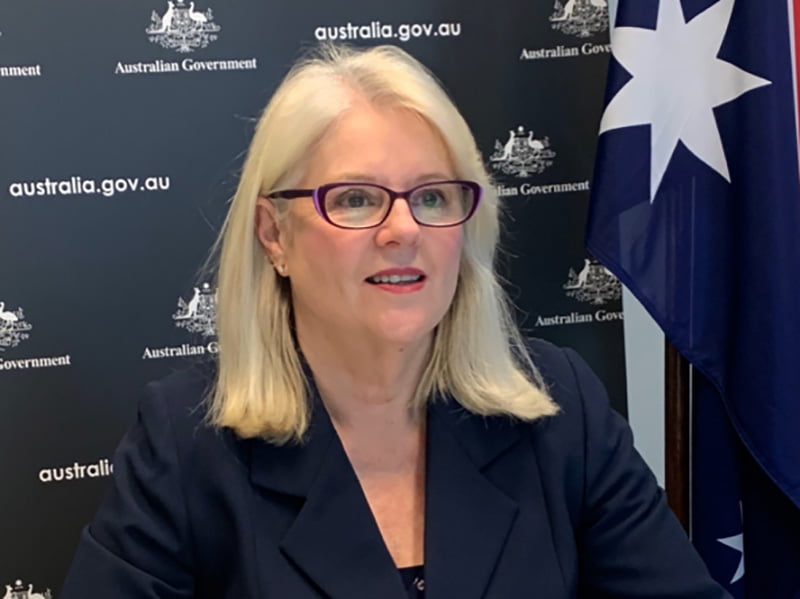Legislation facilitating an expedited data-sharing deal with the US has sailed through Parliament in minutes with bipartisan support and not even a debate, just days after Prime Minister Scott Morrison claimed the bill did not have bipartisan support.
The International Production Orders (IPO) bill passed through the lower house late on Wednesday night with a number of amendments following 23 recommendations from the national security committee.
It was then passed quickly by the Senate on Thursday, the last sitting day until August. Both times it was not debated by either major parties, with Labor and the Greens tabling their speeches due to a lack of time.
This was despite a number of concerns surrounding the legislation in terms of privacy and human rights protections, and previous claims that it did not have bipartisan support.

The IPO bill lays the groundwork for Australia to enter into data-sharing deals with foreign countries, allowing local authorities to request communications directly from overseas companies and vice versa.
The passing of the legislation brings Australia a step closer to securing a CLOUD Act agreement with the US government, which it has been in negotiations over since late 2019.
This month Mr Morrison called on Parliament to urgently pass the IPO bill and claimed that it “does not have bipartisan support”.
But Labor quickly labelled this a “flat out lie”, saying that the bipartisan Parliamentary Joint Committee on Intelligence and Security (PJCIS) had recently provided a number of recommendations for amendments to the bill, and Labor would support it after this.
Speaking in Parliament this week, Shadow Attorney-General Mark Dreyfus slammed Mr Morrison over his previous remarks.
“The only thing about this bill that has not been bipartisan has been the Prime Minister’s grossly irresponsible press conference,” Mr Dreyfuys said.
“It was a disgraceful performance unworthy of a member of Parliament, let alone a minister, let alone the Prime Minister.”
The PJCIS tabled its report on the legislation in May, making 23 recommendations for improved transparency and protections.
The federal government moved a number of amendments in the lower house this week largely meeting these recommendations, including to require that any potential agreement is tabled in Parliament and 15 sitting days being given for either house to block it, before it is signed.
The amendments also require Australia to consider the respect for the rule of law and human rights in a foreign country before inking a deal with them and other safeguards around these agreements.
Following the amendments being moved, the legislation sailed through both house in minutes and will now become law.
Home Affairs minister Karen Andrews said the IPO scheme will “revolutionise the way Australian agencies investigate and prosecute serious crime”.
“The legislation stands as a significant achievement for Australia. It will usher in a new generation of international crime cooperation agreements with trusted foreign countries, such as the United States,” Ms Andrews said.
“This will vastly fast-track the time it takes for police and intelligence agencies to obtain overseas-held data which at the moment can run into months, often meaning investigations have run cold.”
The federal government provided nearly $10 million over four years to facilitate a data-sharing deal with the US, and Labor has now urged quick movement to secure such an agreement.
“The Morrison government has been painfully slow to pursue and realise this opportunity, and, let’s be clear, while this bill is a necessary and welcome step, it is not sufficient; the government still needs to do the deal with the United States. Labor sincerely hopes the government manages to do so,” Mr Dreyfus said.
The Greens voted against the legislation in both houses, with leader Adam Bandt saying he has “grave concerns” with the scheme.
“There are some very real concerns with the lack of protections and the lack of parameters that are set out in this bill,” Mr Bandt said.
Independent MP Andrew Wilkie slammed the rushed process behind the bill’s passage through Parliament.
“I believe that this is no way to address such an important issue of national security, to rush it through after the Parliament was due to rise this evening. Surely this is a matter that needs to be considered in detail by the Parliament with a full debate allowed,” Mr Wilkie said.
The legislation was rushed through the Senate, with a Greens amendment calling on the Senate to note that it is “impossible to fully identify and assess the safeguards” in the bill and that it leaves many essential details to the final agreements being knocked back by both major parties.
The legislation was ultimately passed by the Senate with a 32 to 13 vote, with the Greens along with Pauline Hanson, Malcolm Roberts, Jacqui Lambie and Rex Patrick voting against it.
Do you know more? Contact James Riley via Email.

